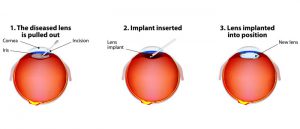Cataract Surgery in Iran
Iran Cataract Surgery Package
Iran is well-known for its experienced ophthalmologists and world-class eye care centers and services across the country, mainly in larger cities including Tehran, Shiraz, and Mashad. Eye surgery in Iran has been in high demand in recent years. People from different countries travel to Iran throughout the year to receive various types of eye treatments and operations, such as Blepharoplasty, and cataract surgery.
Iran Medical Tours offers the best Iran Cataract Surgery Package including highly qualified surgeons in modern hospitals at affordable prices. We will support you through every step of the process, from the moment you plan for cataract surgery in Iran until you return home. Just send your request to us and we will arrange all your medical and travel needs.
What Is a Cataract?
Cataracts are caused by the aging of the natural lens of the eye. In this case, a group of pathologic factors and cellular and structural changes in the cornea cause cataracts to develop gradually. As a result, specific proteins within the lens gradually accumulate and ultimately leading to a gradual clouding of the lens. The compression and hardening of the lens cause changes in its power and make the patient nearsightedness, or sometimes farsightedness.
Through cataract surgery, the lens of the eye is removed and, in most cases, replaced by an artificial one. So, it helps eliminate or reduce the need to use eyeglasses or contact lenses. This surgery, normally performed on an outpatient basis, is one of the safest, most effective, and most common eye procedures and has minimum side effects, so there is not much to worry about it.
Some Types of Cataract Lenses
-
Monofocal intraocular lens (IOL): with one focusing distance for near or intermediate distance
-
Multifocal intraocular lens (IOL): for vision focused at different distances
-
Accommodating intraocular lens (IOL): for focusing on various distances by moving inside the eye
-
Toric: for Astigmatism correction
Some Possible Risks in Cataract Surgery
-
Infection
-
Swelling
-
Unexpected minor bleeding in the eye
-
Continuous pain
-
Decline of vision
At What Age Do Cataracts Usually Develop?
Cataracts usually occur in the age range of 65 to 70 years, and the probability of cataracts in this age range is 50%. But in those over the age of 70 years, the risk of cataracts increases up to 75%.
Cataract Symptoms
-
Clouded, blurred, or dim vision
-
Increasing difficulty with vision at night or bright lights
-
Impaired night vision while driving
-
Changes in your color vision
-
Double vision
Who Are NOT Good Candidates for Cataract Surgery?
There is no special limitation on cataract surgery.
Preoperative Preparation
-
Bathing: Wash your eyelids and eyelashes with baby shampoo the night before surgery.
-
Facial Makeup: Avoid eye and facial makeup 48 hours before surgery.
-
Medications: Be sure to consult your ophthalmologist before taking any medication, including antihypertensive drugs, blood sugar control, blood thinners, etc. Sometimes, eye drops might be prescribed a few days before the surgery.
-
Diet: Eat light meals and avoid eating milk, eggs, butter, cream, and fatty foods the night before surgery. Do not eat breakfast or any food and beverages on the day of surgery.
-
Fasting: Avoid eating and drinking any food within six to eight hours prior to your hospital stay.
Duration of Your Stay in Iran
Phacoemulsification cataract surgery: 5-7 days
Femtosecond laser-assisted cataract surgery: 2-3 days
If both eyes need cataract surgery, each eye surgery would be performed separately and usually within a few weeks.
How Much Does Cataract Surgery Cost in Iran?
The cataract surgery cost in Iran is affordable in internationally standardized hospitals and clinics but can vary depending on several factors, including the type of surgery, the location and reputation of the hospital or clinic, the experience of the ophthalmologist, the type of intraocular lens (IOL) used and whether you need surgery on just one eye or both. It is important to note that prices may vary across different cities and regions in Iran.
The approximate cataract surgery cost in IRAN for ONE eye starts from $1400.
It would start from $1600 if performed with a Femtosecond device.
If you would like to perform cataract surgery and anterior vitrectomy at the same time, it can start from $2000.
The cost of cataract surgery in Iran will typically also be higher if:
-
you get a multifocal or extended depth of focus IOL;
-
the surgery takes place in a hospital setting;
-
newer surgical techniques are used, such as laser-assisted surgery;
-
there are any complications during surgery; and
-
you have coexisting health conditions.
Cataract Postoperative Care
-
Do not sleep on your treated eye and ask your ophthalmologist about how long you should sleep in this way during your first postoperative follow-up.
-
Avoid water or soap from entering your eye. 2 days after surgery, you can take a bath, or perform your ablutions.
-
Avoid rubbing and pressing your treated eye, as it may interfere with the normal healing process of the wound and may cause burning and itching of your eye or cause other eye complications.
-
Avoid bending your head for a week.
-
After 6 days, you can prostrate. (*for Muslim patients)
-
Ask your ophthalmologist when you are allowed to wear eye makeup, drive, and swim.
-
Avoid lifting objects heavier than 10 kg in the first few weeks after surgery.
-
Avoid intense physical activities such as exercising or the ones which require serious involvement of your vision including reading and driving.
-
If your ophthalmologist has prescribed a protective eye shield, eye patch, or eyewear for you, be sure to wear it to protect your eye against possible eye injuries.
-
There is no need to change your diet after surgery. Of course, it is best to use soft meals in the first hours after surgery. Moreover, avoid constipation by eating the right amount of vegetables, fruits, and water.
-
Take your eye drops and medications according to your ophthalmologist’s direction.

